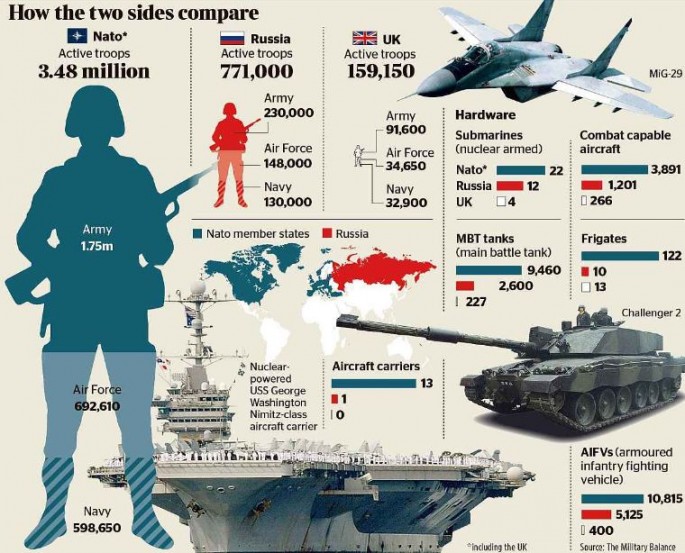Gen. Mark A. Milley, Chief of Staff United States Army, told Russia, China and the United States' other strategic competitors in no uncertain terms the U.S. Army will defeat any of them in ground combat "anywhere, any time."
That ground combat will likely occur in Eastern Europe where the U.S. military and its NATO allies have a heavy superiority in force over the Russian Army with its less than 240,000 men. There are some 30,000 U.S. Army personnel in NATO countries and 410,000 in the continental United States.
"The strategic resolve of our nation, the United States, is being challenged and our alliances tested in ways that we haven't faced in many, many decades," said Gen. Milley during the Association of the United States Army's annual meeting in Washington, D.C.
"I want to be clear to those who wish to do us harm ... the United States military -- despite all of our challenges, despite our [operational] tempo, despite everything we have been doing -- we will stop you and we will beat you harder than you have ever been beaten before. Make no mistake about that."
"Make no mistake about it, we can now and we will ... retain the capability to rapidly deploy," he said, "and we will destroy any enemy anywhere, any time."
Gen. Milley noted the Army is engaged in rebuilding its readiness after over a decade of extended counter insurgency combat operations in Iraq and Afghanistan. The Army has also significantly reduced its manpower since the Cold War ended in 1991 and has had fewer dollars to spend on its modernization over the last decade.
"While we focused on the counter-terrorist fight, other countries -- Russia, Iran, China, North Korea -- went to school on us," he said.
"They studied our doctrine, our tactics, our equipment, our organization, our training, our leadership. And, in turn, they revised their own doctrines, and they are rapidly modernizing their military today to avoid our strengths in hopes of defeating us at some point in the future."
He warned that future warfare with a near-peer adversary such as Russia and China will "be highly lethal, unlike anything our Army has experienced at least since World War II."
"Our formations will likely have to be small; we will have to move constantly," he said. "On the future battlefield, if you stay in one place for longer than two or three hours, you will be dead."
The Army is adapting to survive this very lethal future battlefield.
"It's a tall order for sure -- to project power into contested theaters, fight in highly populated urban areas, to survive and win on intensely lethal and distributed battlefields and to create leaders and soldiers who can prevail. Tough? Yes. But impossible? Absolutely not."



























